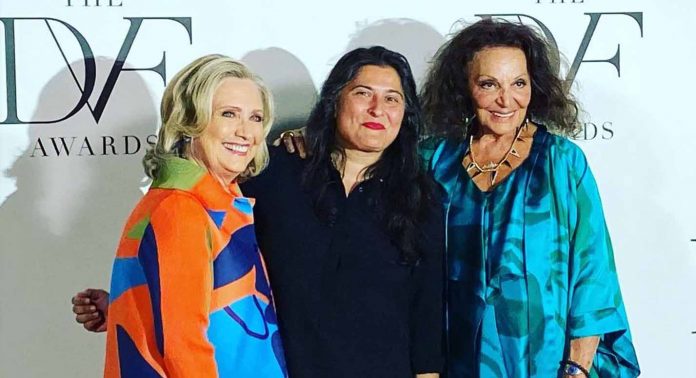It’s 2002 at this time. Sharmeen Obaid-Chinoy, a burgeoning filmmaker who hopes to present important stories in Pakistan, has lofty ambitions. She’s got some issues. Obaid-Chinoy is in a bind because of its lack of visibility and its meager finances. One day, while cleaning up, she comes upon a magazine that completely destroys her confidence in her own creative abilities.
The now-two-time Oscar winner said, “This magazine had statistics,” to an enthralled gathering at a fancy Karachi hotel. What really stood out to me was that between 1963 and 1966, Pakistan produced 65 documentaries that went on to win over 20 awards all across the world.
Adding, “When I opened my eyes in 1978, that was not Pakistan that earned awards globally,” the Saving Face director, who went on to study and work under some of the most sophisticated minds in her trade, said. After waiting for a while, I believe it is finally time to give back to the people of Pakistan by establishing a film industry there. Patakha Pictures is our side hobby that has the same goal in mind. The women you are going to meet are, in a word, my idols.
It was the participants’ sheer will, dedication, and enthusiasm, the Ms. Marvel director added, that allowed them to tell the tales they wanted to tell from the communities to which they belonged.
Obaid-Chinoy’s most recent project, which gave 19 filmmakers from all over Sindh and Balochistan grants and financial compensation in addition to the technical skills they needed to express the stories they wanted to share with the world, brought them together. The 19 directors showed clips from 10 documentaries to the audience. Karachi Begums: Women, Theatre, and Activism in Pakistan, The Silence After the Storm Niswan-Nama, There’s “From Rocks to Gold” (Dich) and “From Rocks to Gold” (Nayyar) and “Made With Love” and “Sculpted” and “Defiance” and “Pehchaan” and “Tum Nahi Chara Gar” and “K Screenings of The Art of Balochistan revealed the participants’ meticulous attention to detail in their works.
“The whole idea is to be the ecosystem for the female filmmakers of this country,” Obaid-Chinoy said in an interview with The Express Tribune. We are planting the seeds for its eventual growth. After gaining experience, guidance, and resources, these ladies can return to their hometowns and teach others about filmmaking. That’s how we’ll get women working in camera, sound, and editing positions. We won’t only be focusing on assisting female directors or actresses, but also women with the technical chops to make movies.
To the core of their beings
These ladies are natives of certain areas. They are locals who are fluent in the language and aware of the problems. No one can tell a narrative about a community better than someone who is a part of that community. That’s why they’re allowed in, Obaid Chinoy said.
After inspiring the audience with her own story of hardship and triumph, Rani Wahidi opted to portray the life of Ishaq Lehri, a sculptor from Mastung. Lehri’s dedication to sculpture has not wavered despite the fact that it is considered haram (prohibited) by both society and religion. When Lehri’s own family, especially his brother, criticizes his work, he must deal with the pressure of going against social norms as well as their own. Because of his dedication to sculpture, Ishaq attracts both supporters and detractors.
Wahidi informed me, “For a long time, the categories of haram and halal have cast a shadow over our art.” As one student put it, “I think it’s about time we come out of the ‘forbidden’ narrative and own our culture.”
Made With Love, by Kainat Thebo, followed a retired educator as she scavenged for recyclables and turned them into beautiful creations. She has built more than a thousand models, including well-known and folk characters from Sindh. She said, “I think her story really appealed to me,” when asked why she was interested in her story. It’s about being environmentally aware while also being substance-aware.
Tum Nahi Chara Gar, written by Yamna Waqar and Nafeesa Ali, follows the life of Payal Nadeem, a transgender person in her late 30s who lives in Quetta, Pakistan. “We’re from Quetta,” the two individuals introduced themselves to me. Since Nafeesa is Hazara and we are residents of Quetta, we are already subject to some scrutiny. We pondered how much more difficulty a trans person would have in that city if she had to deal with the same challenges that we ladies did. For this reason, sharing Payal’s experience is crucial.
Famous faces
Many prominent figures in Pakistan’s entertainment business were also in attendance. In the audience were celebrities including Samina Ahmed, Ayesha Omar, Momal Sheikh, Iqra Aziz, Hira Tareen, Ali Safina, and Faiza Saleem, all of whom applauded the female directors.
“You know, I have to say this: women have this sensitivity about them that reflects so well in their work,” Sheikh told me after the event was over. “Their work behind the camera demonstrates that they are keenly aware of the power of an emotionally engaging narrative, as you have just witnessed. Their work sheds a very different light on the aforementioned topics. I felt shivers and misty eyes.
Ayesha Omar continued, “I am stunned. I can’t help but admire these brilliant young ladies. Their selection of stories is amazing. My desire to create a documentary has been renewed.
